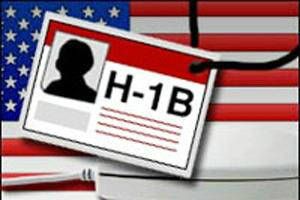Immigration News & Updates         eNewsletter
        eNewsletter
 POSTING DATE: October 9,  2017
Learn More About:
Immigration News & Updates eNewsletter ©  2011  - 2017Â
For questions about U.S. Residency, Green Cards and Immigration Visas, Visit our Website at: www.ImmigrateToday.com or  call our office at: (954) 382-5378
Check Out This Cool Stuff For Immigrants....
Immigration
Questions & Answers
This Week's Immigration NewsÂ
Question: I have a green card and will be eligible to apply for my citizenship next month. I also plan to file for my parents and younger brothers (9 & 12) and sister (15) so that they can migrate here all together. My question is once I file for my citizenship should I then go ahead and apply for my parents and siblings to get an early start before my citizenship is approved or should I wait to actually get my citizenship before I file?
Answer:Â As long as you are age 21 or older, once you obtain your U.S. Citizenship, you can sponsor your parents (each one separately) for their U.S. Residency. You cannot apply for them while you are a U.S. Resident, even if you have filed the Naturalization application â if you do, the cases you file for them will be denied.
Under current law, unfortunately, your younger sister and brothers cannot immigrate along with either parent as âdependentsâ. Instead, once you are a U.S. Citizen, you can sponsor your parents and then once they obtain their U.S. Residency in about a year, one or both of them can file for your siblings. As minor children (under age 21), it will take 1 1/2 + years for an Immigrant Visa to be available for them to Immigrate to the U.S. in the F2A category for minor children of U.S. Residents. I hope this is helpful.
Helpful Immigration Tips You Can Use
Immigration How To:
How Do I Make An Online Inquiry For My Pending Immigration Case?
New Process Allows Immigrants To Apply For Work PermitÂ
& Social Security Card On Same Form
In a surprising move, the USCIS and Social Security Administration (SSA) actually simplified the procedure for Immigrants to apply for a social security number in order to work, using their work authorization. Until this change, applicants eligible for work authorization (work permit) had to file (form I-765) to request it work authorization, wait approximately 90 days to receive it, then go to the local Social Security office to apply for their social security card, which is required in order to begin working.Â
Under the new policy, applicants eligible for work authorization can complete the new application form I-765 and tick off a box on the form to request a social security card as well. Presumably, once the work permit is approved in about 90 days, the social security card will be issued within several weeks.Â
New 90 Day Rule Could Have Serious ConsequencesÂ
For Those Changing Status In The U.S.
Most Foreign nationals who visit the U.S. on U.S. tourist visas, (called B1/B2) are allowed (with some restrictions) to change their status once they are inside the U.S. to another visa, like F-1 student, H-1B worker visa, etc.. Similarly, those who qualify are also able to adjust their status to U.S. Residency (a Green Card) as well.Â
Such status changes and adjustments are governed by the long standing so called â30/60 Day Ruleâ, which essentially says that if a foreign national files a change of status or Residency application within 30 days of entering the U.S., there is a presumption by the USCIS called âpreconceived intentâ that the person misrepresented his or her intentions when they entered the U.S. on their tourist visa. However if the application was made more than 30 days but less than 60 days after entering the U.S., the USCIS would not necessary presume misrepresentation, unless other facts arose to show âpreconceived intentâ at the time of entry. Finally, applications made after 60 days were presumed to be free from any âpreconceived intentâ at all.
However, the State Department recently abruptly changed its policy without notice, from the 30/60 day rule to a flat 90 day rule, essentially abandoning the former rule. Under this strict new rule, any application for change of status or adjustment, or even marriage to a U.S. Citizen made within 90 days of entering the U.S. will result in an automatic presumption of âpreconceived intentâ, meaning that it will be presumed by the government that at the time the visitor entered the U.S.. he or she made a âwillful misrepresentationâ to the officer at the border, which could result in potential revocation of their visa.
Without going into much depth, clearly this new rule could have serious consequences for foreign nationals who come to the U.S. and apply for any immigration application within the first 90 days, then later apply for a visa at the U.S. consulate abroad. For instance, a student comes the U.S. as a visitor, then 60 days later decides to change status to an F-1 student visa. If the student later leaves the U.S. for vacation and goes to the U.S. Consulate abroad to get an actual F-1 visa in their passport in order to re-enter the U.S. as an F-1 student, the consular officer could refuse it and cancel the applicantâs U.S. tourist visa as well. Similarly, if a tourist comes to the U.S. and gets married within 90 days, then leaves the U.S. and later applies for an immigrant visa through that marriage, the visa could also be denied.
At this point, no one is absolutely certain how the new rule will effect individuals in the U.S. who apply for change of status or adjustment within 90 days of entry, because the rule change was made by the State Department, not the USCIS. However, it is assumed that this is a new âTrumpâ policy and as such, the USCIS may adopt it as well. For now, to be safe, visitors to the U.S. would be wise to avoid making any immigration applications within 90 days of entry, in case the USCIS adopts the 90 day restriction, then begins applying it âretroactivelyâ.
As a precaution, couples wishing to get married and parents to obtain Residency should simply wait the 90 days before applying. However, case laws already in force do protect âimmediate relativesâ (spouses, parents and minor children of U.S. Citizens) from the âpreconceived intentâ presumption, but using âTrumpologyâ logic, that may not matter and the USCIS may deny cases and decide to fight it out in court later⦠who knows. In any event, foreign nationals would be very well advised not to file any application for immigration benefits before getting professional advice from a qualified immigration attorney to make sure of timing and eligibility. Stay safe!
Read the new rule:
This sounds very convenient and streamlined, so letâs keep our fingers crossed that implementation actually goes as promised.Â
Read the USCIS announcement:
Reminder That Green Card Lottery Began Last Week On October 3rd!
This Yearâs Visa Lottery called DV-2019 began last Tuesday, October 3rd and runs until Tuesday, November 7th. Read the Department of State instructions and applying online now. Remember, the DV Lottery is always FREE and no paper applications are accepted. Lottery applications are required to be filed online through the official Department of State DV Lottery Website.Â
Once the online entry is made, applicants receive a Confirmation Number, which allows them to return to the official government website and check the status of their entry through the âEntrant Status Checkâ at: dvlottery.state.gov beginning on May 1, 2018. There will be no other official notification. The program does not send notification emails or letters and never directs applicants or winners to wire money under any circumstances.Â
Beware of websites claiming to be official Lottery sites and paralegals, which charge a fee for entry, since they are not affiliated with the official U.S. Department of State and may be scams. Only sites that end in .gov are government sites. Apply yourself â its FREE and easy! Applicants should also have Internet Explorer 8 browser or later in order to submit your application without technical difficulties.Â
Get More Information on applying:
USCIS Finally Resumes Premium Processing For All H-1B Visa Applications
The USCIS announced earlier last month that it would resume 15-Day premium-processing service (an additional $1,225) for pending H1B CAP petitions under the program which began accepting applications on April 1, 2017 (for Fiscal Year 2018).Â
Now, since October 3rd, the USCIS has also made 15-Day premium-processing service available for all H-1B petitions, including those involving extensions and change of employer.Â
Read the USCIS Premium Processing announcement:
Question: I have a question about sponsoring my wife. She came to Florida to visit as a tourist about 5 years ago and never left and we got married about two years ago when I was a permanent resident. I will be sworn in next week as a citizen and we want to file for her residency and work permit as soon as possible. We want you to represent us, but we have a couple of questions, first, is there a waiting period after I get my citizenship before we can file her green card papers? Second, we are afraid that once we file, she will have to leave the U.S. and go back home to Venezuela when the country is very unsafe and we will be separated. If that is not the case, can you just notify the immigration that I am now a citizen so they can give her a green card here? Thank you so much!
Answer:Â Congratulations on your upcoming U.S. Citizenship. There is no waiting period to file your wifeâs residency petition to obtain her Green Card. As soon as you are sworn in next week and get your Citizenship Certificate, we can submit your wifeâs Residency application package the same day. Since your wife entered the U.S. legally as a tourist, (even though she remained her past her authorized stay), under the law, she is eligible to adjust her status to a Green Card inside the U.S. and is not required to leave and go back to Venezuela. The Residency process is very quick, about 3 months to receive her Work Authorization and another 6-8 months or so for her Residency Interview and Green Card.
Family Sponsorship â Check Out the Visa BulletinÂ
Before Making Plans To Immigrate
Many U.S. Citizens and U.S. Residents sponsor their foreign family members to immigrate to the U.S.. However, often, neither the sponsor, nor the family member fully understands how long it will actually take to immigrate.Â
Understanding the approximate length of time it will likely take to be able to immigrate to the U.S. helps foreign family members plan for the future. This is particularly important when family members being sponsored have minor children.
Immigration regulations only allow children who are immigrating along with parents to obtain U.S. Residency if they are under age 21 at the time the family is called to the U.S. Consulate for the final Immigrant Visa appointment. As frequently happens, children who were minors at the time their parents were originally sponsored, may have âaged outâ and be in their mid to late 20âs and thus ineligible to immigrate to the U.S. along with their parents. This is a tragic situation, but very common.Â
The only saving grace is that under the Child Status Protection Act âCSPAâ, the time the I-130 family petition was processing can be subtracted from the age of the child. For instance, if the I-130 petition was filed in 1998 and was not approved until 2003, it was processing for 5 years. Therefore, at the time the Immigrant Visa becomes available, 5 years can be subtracted from the age of a child to determine if the child is still âtechnicallyâ below age 21 for immigration purposes.
So, the best advice is to visit the Visa Bulletin website to view the various family relationship waiting lines so you understand how long the wait will be and understand that some older children may not be eligible to immigrate along with the parents when the time comes. You can get free advice about immigration waiting times by calling our office at: 954-382-5378 and by reading our resource section:Â
Good luck!
You can make an online inquiry for a case pending with the USCIS by filing an âe-Requestâ. To make an inquiry, be sure to have your case number handy.Â
For more information, visit the USCISÂ E-Request webpage













